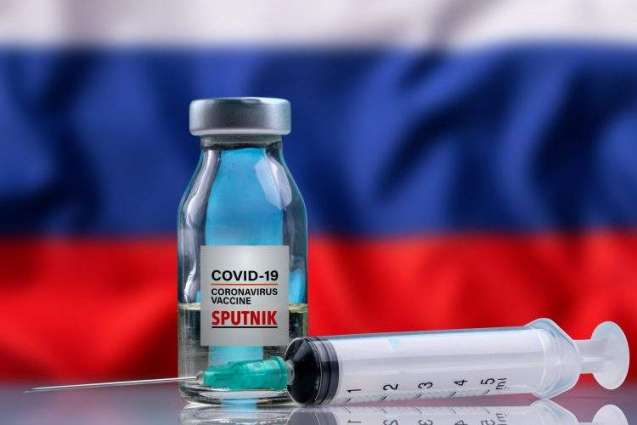The trial on mixing the shots of the UK's AstraZeneca vaccine and Russia's Sputnik V is going on and may result in better efficacy of the inoculation, which, in turn, can change the global approach to vaccinations and their combinations, David Livermore, a member of the scientific advisory board on Sputnik V and a professor of Medical Microbiology at the UK University of East Anglia, said in an interview with Sputnik
GENOA (Pakistan Point News / Sputnik - 05th February, 2021) The trial on mixing the shots of the UK's AstraZeneca vaccine and Russia's Sputnik V is going on and may result in better efficacy of the inoculation, which, in turn, can change the global approach to vaccinations and their combinations, David Livermore, a member of the scientific advisory board on Sputnik V and a professor of Medical Microbiology at the UK University of East Anglia, said in an interview with Sputnik.
Kirill Dmitriev, the CEO of the Russian Direct Investment Fund, said in early January that plans were in place to conduct mixed Sputnik V-AstraZeneca dosing regimen trials, as the Russian vaccine showed better results. According to the scientist, the highest efficacy of Sputnik V among the existing adenovirus vector vaccines, which also include vaccines by AstraZeneca and Johnson&Johnson, may be caused by the usage of different vectors, different carrier adenoviruses for shot-1 and shot-2 of the Russian vaccine. AstraZeneca's vaccine, instead, uses the same chimpanzee adenovirus in shot-1 and shot-2.
"One trial that has now been set up between Gamaleya [research institute], the Russian Direct Investment Fund, and AstraZeneca, is that you will get one shot of AstraZeneca and one shot of Sputnik V. That would be another potential way to go. It is going to be a couple of months, I think, before we see any results from it, at least, vaccines are being recruited as of this month. So that will be very interesting. If that is to give a very positive result, that might well lead to a rethink about using different vaccines in combination," Livermore said.
The Russian manufacturer is not the only one AstraZeneca cooperates with to develop better protection from COVID-19. Earlier on Thursday, the UK Department of Health and Social Care said the country had launched recruitment for the world's first clinical trial that would see volunteers given alternating doses of COVID-19 vaccines produced by AstraZeneca/Oxford University and Pfizer/BioNTech. Commenting on the announcement, the scientist said that he welcomed any collaborations that would help fight the pandemic.
"We all worldwide face a considerable challenge from this virus, from the various mutants it is throwing out, so it is well worthwhile that we look at the best ways of collaborating," Livermore said.
When asked about the possible duration of the vaccine protection, the expert noted that more time and research was needed, adding it can be not until 2022 that the scientific community comes up with a clear answer.
"However, you do have immune memory cells, B cells, which retain the memory of how to make the antibody and hopefully will switch on if you are going to get an infection, and you also have a T cell response, and we know that that persists longer in circulating antibodies. So the reasonable expectation is that vaccine-mediated protection should last more than six months and hopefully more than a year," Livermore said.
As for protection against mutations of the novel coronavirus, the scientist said that it was also not clear yet how effective the existing vaccines could be effective against them. Most of the vaccines have the spike protein, which is on the surface of the virus, as their target. In case new variants modify it in the future, the vaccines may become less efficient or even inefficient at all in the worst-case scenario.
"The best information we have is from the Novavax vaccine, which was trialed in the UK when the Kentish variant was already circulating, and it seemed to give as good a protection against the Kentish variant as against the generality of COVID," Livermore said.
At the same time, the vaccine seems less effective against the strain originating in South Africa � shows about 60 percent rather than 89 percent efficacy. This suggests that the South African variant may be able to get around the vaccines that are based on the spike protein to a degree. However, even 60 percent of vaccine efficacy would in any case be enough to keep herd immunity in the population, the specialist added.




